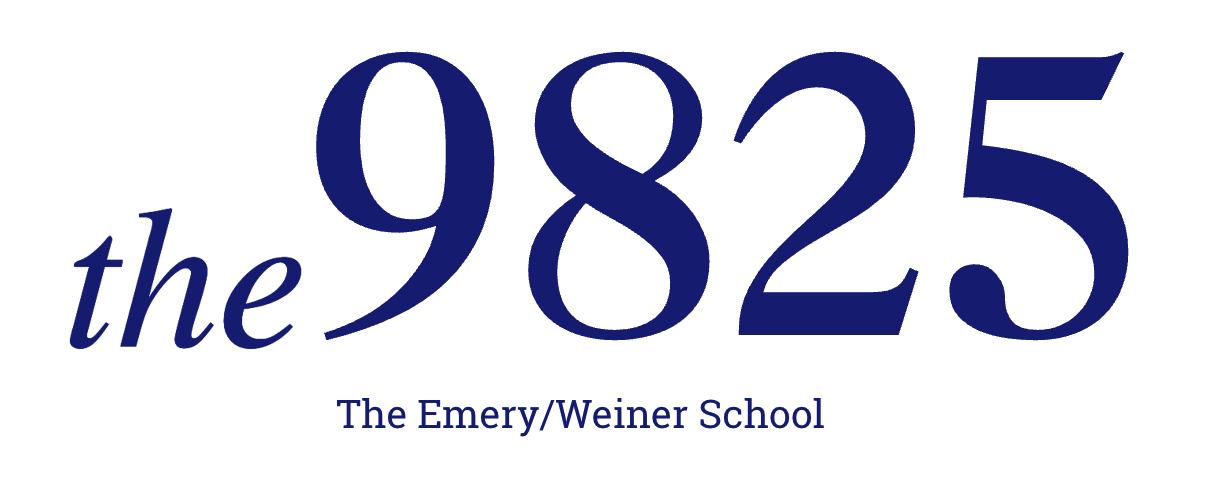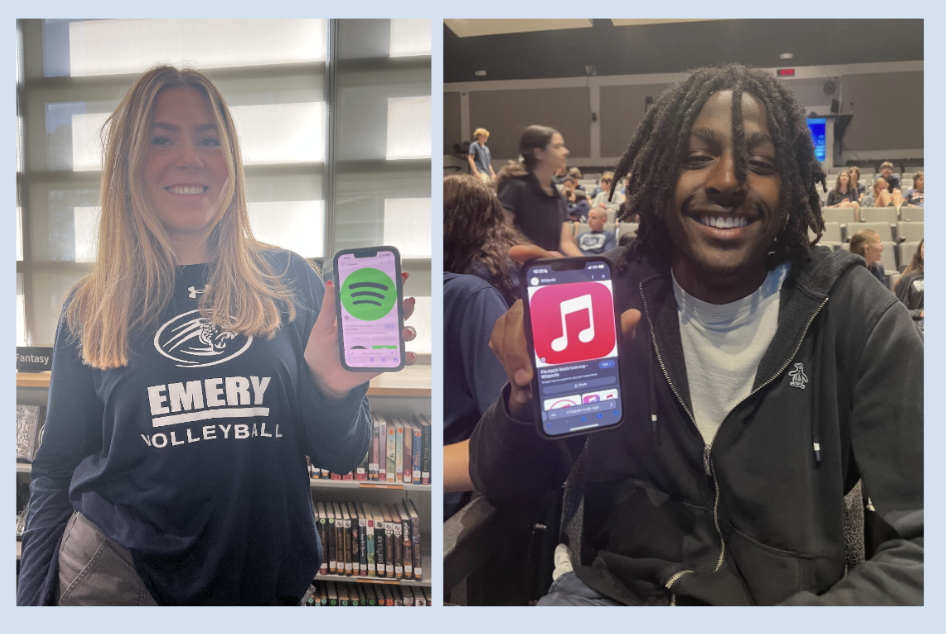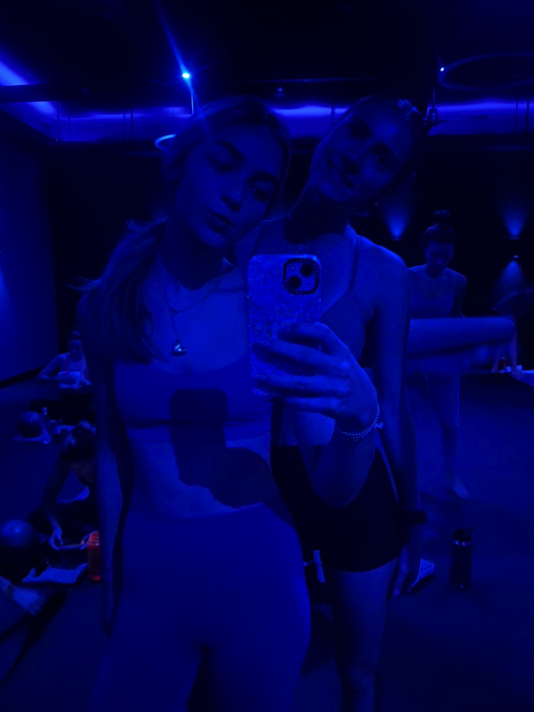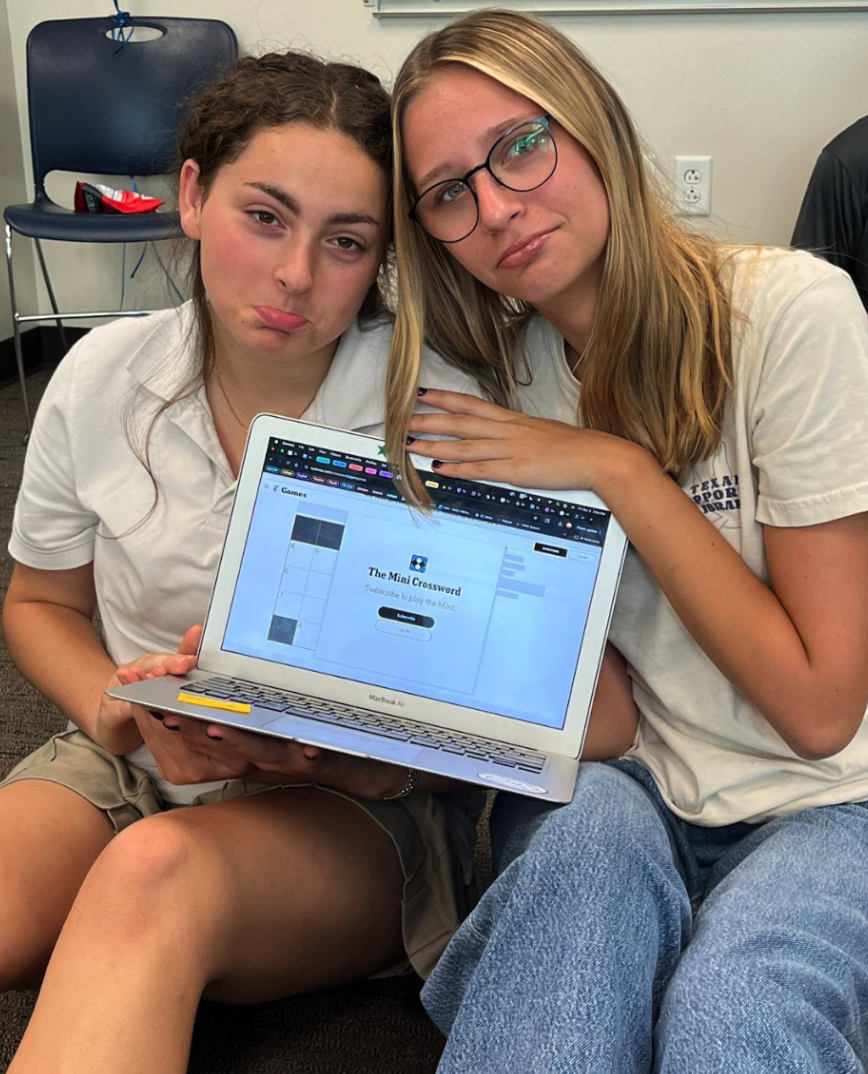As soon as the final 3:30 p.m. bell rings at the Emery/Weiner School, chatter fills the commons as students scramble to the parking lot, sports practice, or theater rehearsal. While some students make small talk as they walk to their next destination, others turn to their headphones for company. Some phones glow red as the Apple Music logo floods their screen while others flash green as the Spotify app opens. Despite their different tastes in streaming services, the students share the same mannerisms of subtle head bobbing as they smile and sway to the beats of their favorite songs.
While the two different apps accomplish the same mission of providing listeners with seemingly infinite amounts of music, the question of whether to use Spotify or Apple Music elicits much debate. Not only do students feel a sense of loyalty to the app of their choosing, but there is an undeniable sense of judgment displayed towards those who use the opposing streaming service.
Junior Sara Callahan has been an avid Spotify user since the sixth grade. Her favorite features include the app’s custom playlists and its annual Spotify Wrapped which is a collection of a user’s top artists and songs shared at the end of every year. “I think Spotify is just better because it offers more features than Apple Music. I don’t have an issue with Apple Music. It’s a great app, but it’s not innovative like Spotify,” says Callahan. Callahan feels that “the app you choose says a lot about you.” Since users are so loyal to their music platform, Callahan believes that a person’s streaming service says something about “how [they] were raised, what kind of vibe [they] come from, and what family [they] come from.”
Not only does one’s streaming service potentially provide a glimpse into their childhood, but it might also suggest the personality of a user. According to freshman Mila Robinowitz, “Collaborative people use Spotify, and more independent people like Apple Music.”
Even though the two platforms are so similar, because music plays such a central role in one’s everyday routine, many teenagers cannot help but feel a sense of judgment towards those who choose an alternate app. Junior Apple Music user Jacob Akalou explains that “there aren’t many things setting the two apps apart from each other. I think people always want to feel like their thing is better so that is really where the argument comes from.”
Like Akalou, sophomore Lauren Getz agrees that the debate between Apple Music and Spotify is “not based on facts because they are both good platforms.” With that being said, as a Spotify user, Getz still feels a sense of judgment towards those who prefer Apple Music. Getz questions Apple Music users because “Spotify is the new thing and Apple Music is outdated. To everybody who uses Apple Music: it’s like why don’t you shift over? It’s been all this time.”
At first glance, as students with headphones brush by one another in the hallway, it is nearly impossible to tell whether they are Spotify or Apple Music users. There is no specific hair color, a way of walking, a sense of style, or any physical trait that suggests an individual’s app preference. Although, as people get to know one another, a person’s streaming platform often aligns with their personality traits. Those who use Spotify seem to be more passionate about collaboration and staying in touch with the latest trends while Apple Music users appear more independent and less concerned about what is considered mainstream. While the argument between Spotify and Apple Music may not be based on facts, the debate proves a teenager’s passion for their music and devotion to their streaming services. As Callahan says, “The debate between Spotify and Apple Music is just a matter of loyalty.”







